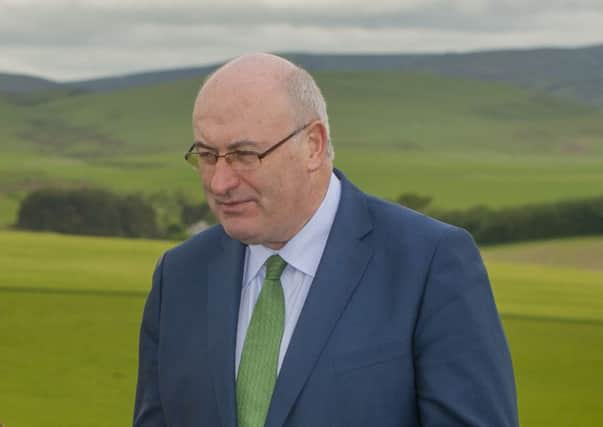Shock tactics aim to cut the death rate in farming


No, the answer isn’t “fill in endless, pointless forms and pieces of paperwork”. Nor is it “shout and curse at the television” when the weather forecast predicts yet another miserable day. It isn’t even “stand out in the rain, sleet and snow” which had been forecast.
The simple but distressing answer is: “Get killed in workplace accidents.”
Advertisement
Hide AdAdvertisement
Hide AdNow it might seem a harsh way of putting the message over, especially at this time of year. But the figures show that while workplace fatalities across all British industries average out at 0.46 per 100,000, that of farming is more than 20 times higher at a shocking 10.2 lives lost per 100,000 people involved in the industry.
In fact, in recent years, farm deaths have accounted for almost a quarter of all workplace fatalities.
The sad fact is that this grim toll on British farms has continued pretty much at the same level for decades – but Farm Safety Partnerships have been set up recently to try to get a step-change in the statistics.
And a meeting of the Scottish initiative heard last week that a blunt, no-holds-barred approach to the issue taken in Northern Ireland has made farmers sit up and take notice.
Everyone knows that while they make grim reading, statistics seldom make anyone change their mind – but the stories of ruined businesses and broken families which lie behind the statistics can communicate to us directly.
And that is one of the areas the Northern Irish have concentrated on in a television advertising campaign, which uses a video rewind style to trace the sale of a farm or the break-up of a marriage back through to the devastating accident caused by a moment’s inattention or a split-second decision to take a risk.
The shock tactic adverts make for uncomfortable viewing – but they do get the message across. While the number of fatalities has declined, no-one is claiming victory because the figures vary from year to year – but when asked, 96 per cent of the farmers in Northern Ireland had seen the campaign, and 93 per cent said they identified with its content.
The issue has been addressed on more than one front – and following the death of a well-loved national rugby player and several members of his family in a slurry gas incident, farm safety demos are often included at sporting events around the country as well.
Advertisement
Hide AdAdvertisement
Hide AdThe safety campaign also has benefited from considerable backing from politicians in the country – and this support was probably due in no small part to the work of a farmer who had lost an arm in a power take-off (PTO) accident when he addressed the country’s national assembly.
During his talk he stripped down to his torso, revealing the stump that remained of his amputated arm – and challenged everyone there to try to put their shirts and ties back on using only one arm.
The campaign has also seen the ancillary industries joining in as well, and when there is a focus on specific issues, such as PTO guards, machinery suppliers have offered discounts on new guards during the duration of the campaign.
So if it takes a hard-hitting campaign to everyone thinking about farm safety, Scotland too might need to stop worrying about offending people’s sensibilities and dish out a blunter message.
Of course, there is an alternative approach which is also guaranteed to get farmers’ attention.
When Phil Hogan first took up his office as European Union farm commissioner he was well aware of farming’s poor record – and proposed that health and safety regulations should be tied into farm support payments. He said that just as farmers were expected to comply with environmental directives and rules on animal welfare, they should also be expected to comply with safety rules.
Unsurprisingly, there was an immediate backlash from farming organisations, who claimed that a voluntary approach would be far better and Hogan was forced to put the idea on the back burner.
But with no improvement in sight – and more than 1,000 fatal accidents on farms in Europe in the past year – he might reconsider.